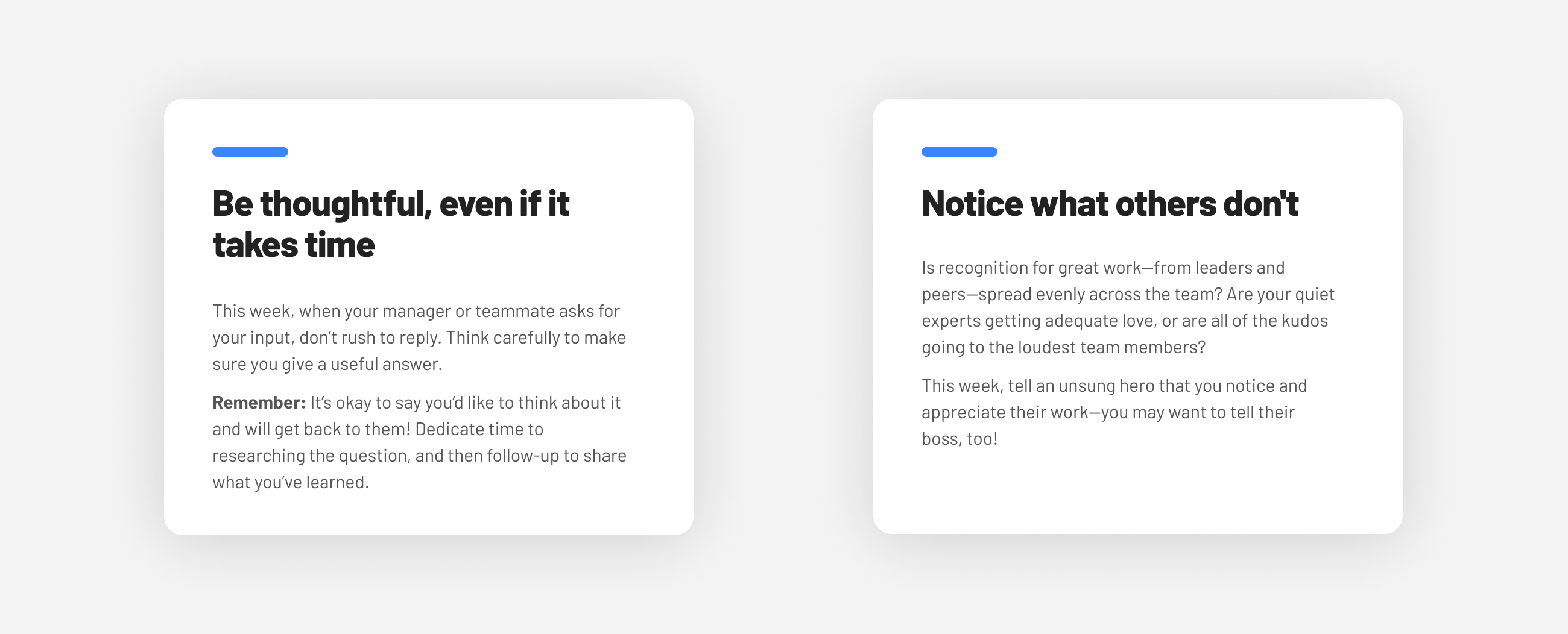Why understanding intersectionality is the key to an inclusive culture
As teams shift to hybrid work, diversity, equity and inclusion (DE&I) needs to be a priority. Bias creeps in much more easily when teams aren’t always together in person. When a manager sits next to an employee, it’s easy for them to start to favor that person. Employees who work remotely might also worry they’ll be passed over for promotion or have their contributions overlooked when their peers are working on-site. This “out-of-sight, out-of-mind” fear is well-founded: Pre-pandemic research shows that remote workers tend to get lower performance evaluations and fewer promotions than their colleagues who are in the office.
But hybrid work isn’t the only trend that has heightened the importance of improving inclusion. Over the past year, the number of people leaving their jobs has skyrocketed to historical highs in what experts are calling “The Great Resignation.”
Inclusion is critical to retaining and developing top talent. Employees who feel heard, valued, and empowered to succeed are nearly three times as likely to report feeling excited by and committed to their organizations than those who do not. They’re also more likely to suggest innovative ideas, ask questions, and flag issues before they become costly problems.
We’ve always made it a point to incorporate elements of inclusion into all of our Humu solutions. Whether your goal is to help managers become more effective or maintain and strengthen your culture through change, real change happens when people start taking more inclusive actions.
It’s also why we decided to invest in improving our Heatmap Explorer, which empowers you to uncover how different groups are feeling across your organization. You can now identify meaningful trends across groups, better understand what's driving those discrepancies, and then easily share data for stakeholder discussions. Here’s how it works.
Get a complete picture of inclusion with your organization
Intersectionality is always at play across large, highly-matrixed organizations. Every employee or employee group will have a different experience based on a number of factors, including their demographics, gender, and location. For example, a female leader on the sales team may feel a strong sense of belonging at work, while a female people scientist may not. Without digging into the data, you may not be aware of these important differences.
.png)
That’s why our dashboard allows you to filter by dimensions like level, tenure, gender, and region, giving you a deeper understanding of how people within your organization are feeling.
Easily equip key stakeholders with the context they need to drive change
Building an inclusive culture is a team effort. At Humu, we know that action starts with having full context. The next time you notice a meaningful group difference in Heatmap Explorer, you can easily export those results and bring them to stakeholder discussions. Successful policies and initiatives require everyone involved to understand exactly what’s going well—and what might need improvement.
Offer teams the exact support they need
To better support your people, or to achieve quick wins as you roll out a new inclusion initiative, you can always log into your Nudge Control Panel, click on “Add an Insight” and choose the issue impacting your teams. Humu will take this additional signal into account, and begin sending nudges to offer the exact support that’s needed.

Humu makes it easy to see which groups need additional support, empowering you to create an inclusive culture at every level of your organization. See how we can help you create an environment in which each of your people can thrive by getting in touch today.




.png)

